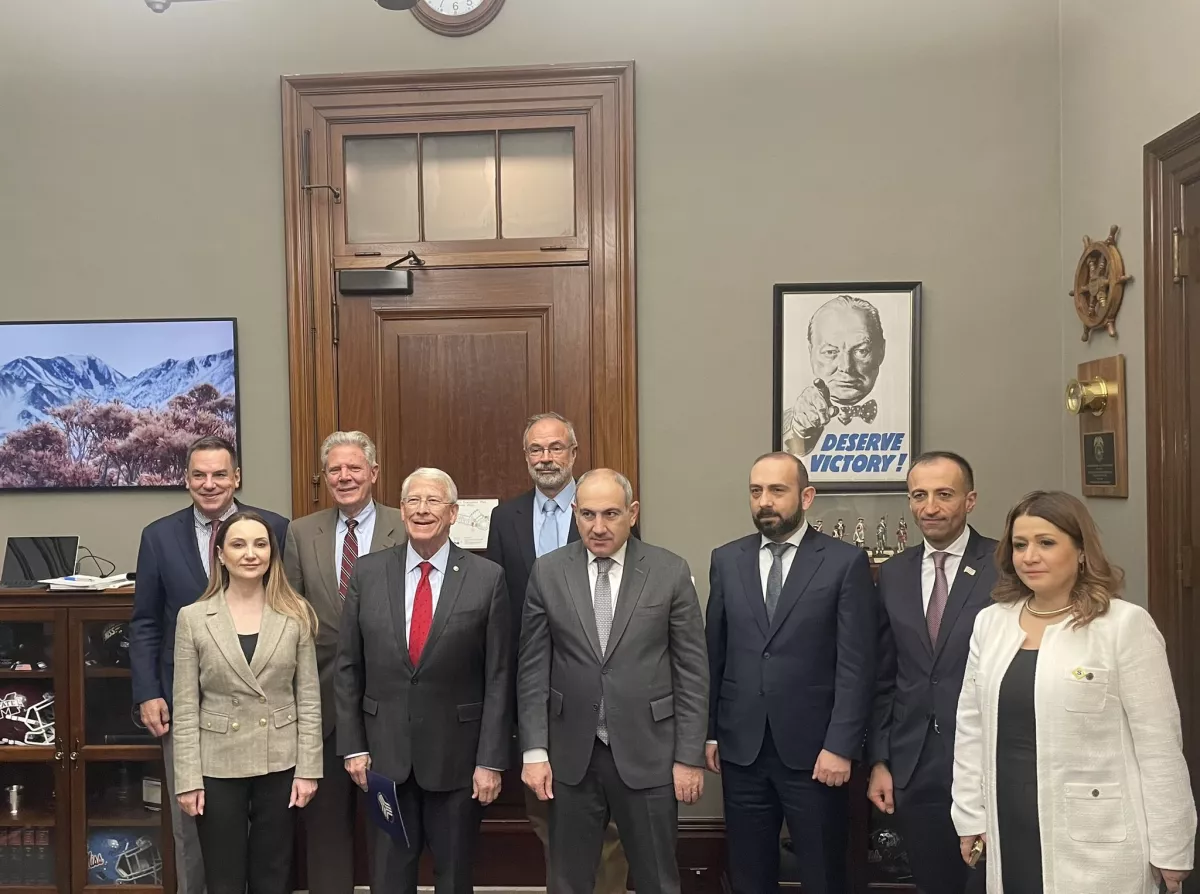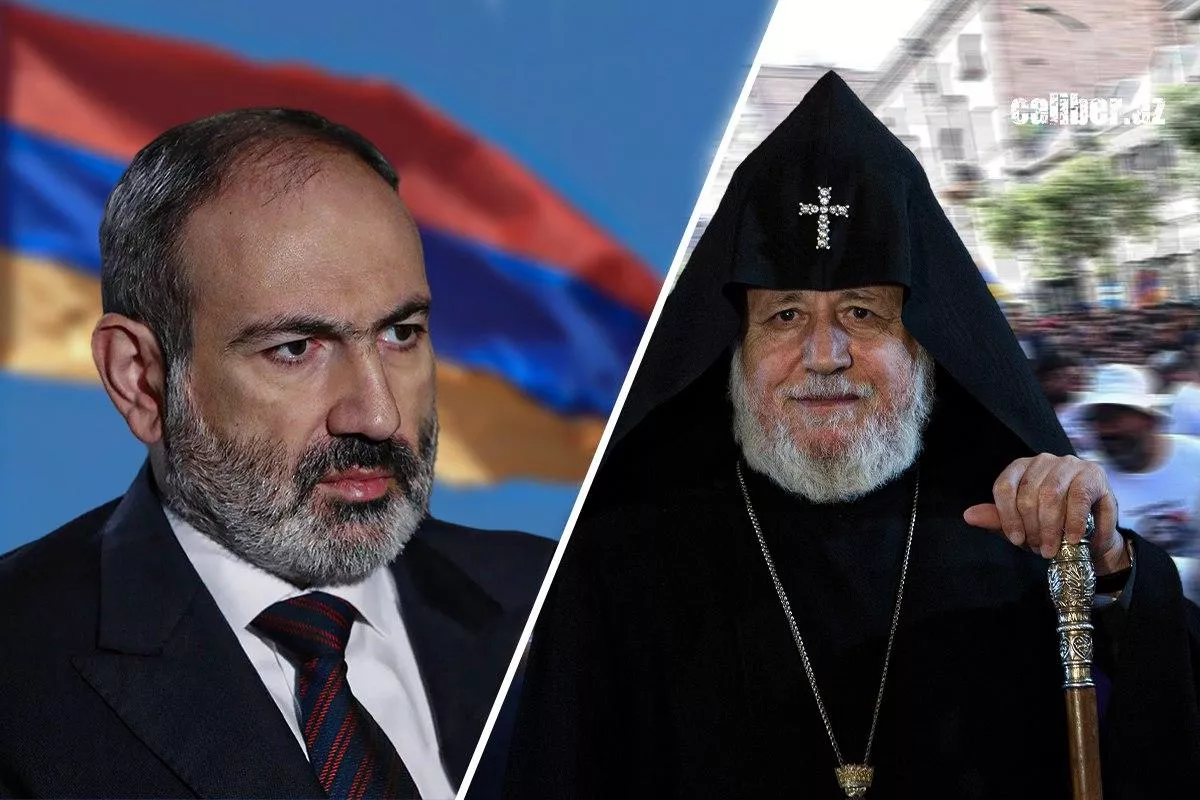Trip to America: Pashinyan in search of solid ground
Armenian Prime Minister Nikol Pashinyan is currently in the United States on a working visit—not an official one—without any scheduled meetings with the country’s leadership. So far, his engagements have been limited to pro-Armenian congressmen and senators, including Roger Wicker, Andy Harris, Richard Hudson, and, notably, Frank Pallone.
We will return to what Pashinyan may be seeking from the White House. However, his visit is also noteworthy in the context of the Armenian leadership’s relationship with the Armenian diaspora—specifically, its wealthiest and most influential segment, the Armenians of America.

It is no secret that Pashinyan has a strained relationship with the Armenian National Committee of America (ANCA), the main organization representing Armenian Americans. ANCA has accused him of adopting a conciliatory stance toward Azerbaijan and, more broadly, of "surrendering Artsakh."
Within Armenia, Pashinyan has long been promoting the concept of a "real Armenia," a narrative he previously shared during meetings with the Armenian diaspora in Europe. Now, he is bringing the same message to the United States. However, his visit has been met with resistance. Notably, many members of the Armenian community in Washington declined to attend his meeting on February 3. Some, including the Armenian Youth Federation (AYF), even staged a protest outside the Armenian Embassy in Washington, holding banners with strong anti-Pashinyan slogans.
Those who did attend Pashinyan’s meeting were met with some sobering revelations. He claimed, for instance, that Armenia’s defeat had, in fact, provided an opportunity to establish a truly independent and sovereign state. He further asserted that the Republic of Armenia itself is the highest national priority—one that supersedes all other national objectives.
The audience listened calmly—there were no angry outbursts or booing. And it is unlikely that Pashinyan would have appeared before a crowd where he risked being met with open hostility. It seems he knew exactly whom he was addressing. Does this indicate a growing divide within the diaspora regarding Armenia’s future ideology? There are signs that part of the Armenian diaspora now views Pashinyan as a viable counterpart—perhaps because many suspect that his peace-oriented rhetoric is merely a façade, masking careful preparations for a future revanche.
Representatives of the Armenian Church were also present at the meeting, and Pashinyan held a separate discussion with them. This could signal an impending split within the global Armenian Church structure. Is it possible that the throne of Catholicos Karekin is beginning to tremble?
Continuing with the religious theme, Pashinyan’s U.S. visit also includes attendance at the 5th Annual International Religious Freedom Summit in Washington, as well as the National Prayer Breakfast.
It seems likely that Pashinyan is seeking the support of the U.S. religious establishment, which, as we know, holds more sway with Trump than with the Democrats. This backing is crucial for two reasons: first, to advance his potential revanche ambitions, and second, to bolster his standing among Armenia’s religious population. After all, Pashinyan has effectively declared war on the Armenian Church, which strongly opposes his liberal agenda and holds him responsible for the collapse of the “miatsum” movement. From this angle, it will be particularly interesting to see how the religious landscape in Armenia evolves moving forward.

Paradoxically, it was precisely for the so-called atheists from the democratic camp that Armenia held a more sacred meaning than for the deeply religious Trump. The Democrats were protective of Armenia because they regarded it as a “bastion of Western culture.” Now, it seems, Pashinyan is attempting to ride the religious discourse of the new occupants of the White House.
However, so far, Trump has not even agreed to meet with Pashinyan. According to media reports, all structures of the Armenian Ministry of Foreign Affairs, the Armenian Embassy in the U.S., and influential Armenian-American Republicans were involved in trying to arrange the meeting, but to no avail.
What does this refusal signify? We won’t dig too deep, but we might speculate that Trump’s refusal to meet with Pashinyan speaks more to his irritation with Yerevan, which seems to be using the banner of Christian solidarity to push its own self-serving interests.
The question of Christian aid may be postponed, but can we say it has been completely cancelled? While it’s too early to claim that, we can certainly pursue a policy focused on neutralizing attacks on Azerbaijan. Trump, no less than Christian societies, needs cooperation with the Islamic world. Despite his bold political stance, he is not the type to hastily rush into a crusade against Muslims.
Let’s not forget that the victorious 44-day war took place during his first term, and throughout that period, he did not engage in anti-Azerbaijani rhetoric or actions. Moreover, Azerbaijan is a model society with rich traditions of multiculturalism and respect for all faiths, making it a unique partner for the United States.
With Trump’s business-oriented approach to politics in mind, it becomes clear that Azerbaijan and the U.S. have a reasonable foundation to strengthen their partnership. The Trump team understands this, which is likely why they are not keen to entertain a minor petitioner like Pashinyan, who has little to offer America beyond the myth of Armenia as the "first Christian state."








